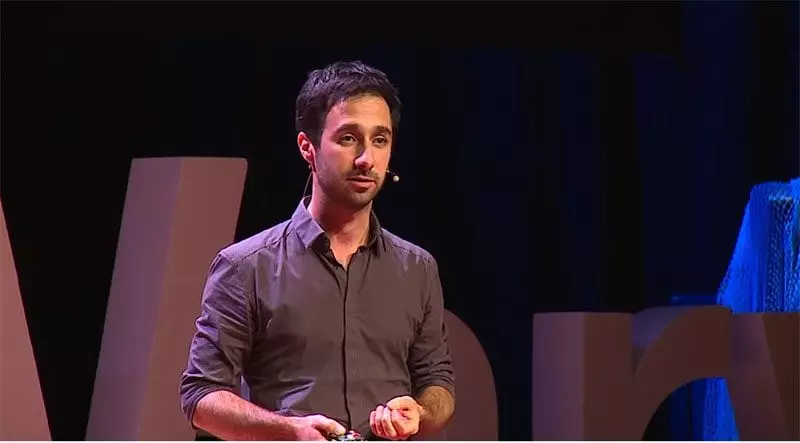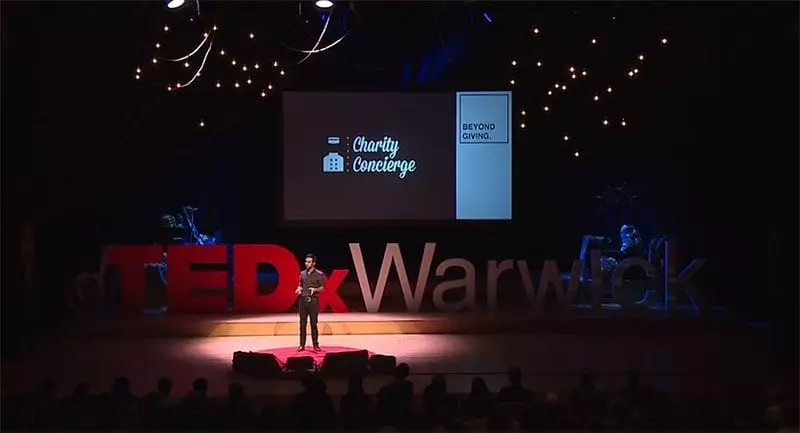Thomas Muirhead on how charities must move beyond giving
Thomas Muirhead, managing director of child.org, last week shared his ideas on how charities can move beyond traditional giving to put social entrepreneurship at the heart of their income generation strategy. He argued that tackling “the overhead myth” is an important element of enabling the sector to grow.
Speaking at TEDx at the University of Warwick Muirhead argues that the solution to global challenges like poverty and gender inequality is best tackled by the charity sector. Governments and the for-profit sector are not best-placed to solve these problems. The charity sector “has been the experts in those goals for a very long time”.
He says that the UN estimates we need between $5tn and $10tn every year between now and 2030 to achieve the Sustainable Development Goals. That’s about 5% of the world’s gross national income.
What is really needed, he argues, is to find and support “the smartest people with the most sophisticated technology… and give them the freedom to really tackle these problems”.
He continues:
“Imagine if you had a group of experts who’d been working on these problems for decades. Trying different approaches, see what works, what doesn’t. We already have these people. We have a sector brimming with some of the smartest minds in the world. And they are capable, if they were given enough resources, of really delivering this sort of change. And that sector is the nonprofit or charity sector”.
But how to get them $5-10 trillion a year? Is it down to society giving more? He is not convinced. Giving hasn’t grown – it’s been flat-lining in the UK for decades.

Thomas Muirhead – “nonprofits need to think like businesses”. Speaking at TEDx Warwick.
Advertisement
The overhead myth
He argues that this is due to the fact that the public really doesn’t understand how charities operate. At the heart of this is “the overhead myth”. In other words, a charity that has low admin or ‘overhead’ costs is ‘good’ and efficient. “This perception is fundamentally wrong” he argues.
“If you focus on the overheads, you paralyse the nonprofit sector. You can’t grow to the kind of scale it needs to be if it is going to tackle these problems at we’ve set it”.
Investing in fundraising
He cites his own experience of investing donations in fundraising. Last year child.org used £10,000 of donations it had received to build a fundraising product, Charity Concierge.
He explains:
“So we took £10,000 of these donations and we didn’t spend them on projects in Africa helping children, we spent them on a new fundraising product here in the UK and that is Charity Concierge.
“And for each donor’s pound we spent 100% of that on admin costs. Now that would be vilified in the press – “unscrupulous”, “shameful”, “scandalous” are all words that our national press here in the UK have used about nonprofits doing exactly this sort of thing.
“But because our donors trusted us we turned that £10,000 into £35,000, and this year £150,000. And that is £150,000 every year that we can use to help children.
“I know we used that money better by spending it on admin costs than by spending it directly on helping children”.
He argues that this view of admin costs looks even stranger when you try to apply it to the business sector. He suggests the globally successful technology company Apple has admin costs of 80%. He invites us to imagine what would happen if, for some reason, Apple decided to shift its focus by becoming a nonprofit and donating its profits to cancer research.
“Bizarrely in people’s eyes Apple would go from being one of the most lauded, efficient, effective, successful companies in the world overnight to be viewed as one of the world’s worst nonprofits.”
My thoughts on non-profit sector evolving beyond giving @TEDxWarwick @Childdotorg https://t.co/f731jijrfS pic.twitter.com/G57lJBcMSV
— Thomas Muirhead (@thomasmuirhead) April 25, 2016
How to grow giving?
We need to move “beyond giving” he suggests.
Giving and taxation are not going to grow to benefit charities. That leaves spending, about 65% of our economy. That’s where he thinks we’ll find this additional 5% needed to achieve the global goals.
Nonprofits need to start thinking like businesses and building businesses. They don’t even have to be related to the cause – they just have to make money.
He argues that sports challenge events are a huge missed opportunity for the generating income for the sector. Of course, they do really well and raise lots of money for charities. But they miss one thing: there are many people willing to take part in an event but who are put off by the idea of having to fundraise for sponsorship, and so don’t take part. He suggests scrap the sponsorship element and replace it, like the remarkably successful Tough Mudder events organisation, with simply an entry price.
Similarly, nonprofits can compete with existing businesses for market share. They can can offer a parallel product that, in Muirhead’s view, will be more attractive because the profit from the purchase is likely to benefit the purchaser or her or his family, friends etc, like cancer research.
He said:
“As soon as we remove the irrationality of the overhead myth, the competitive advantages of the nonprofit sector emerge. Industries could be distrupted, huge profits made, and those would be directed to achieving these sustainable development goals. Imagine if 5% or 10% of the profits from the money that we all spend anyway were put to tackling the world’s toughest problems. No poverty, no hunger, halting climate change”.
He concluded by asking the audience to help by making positive decisions about which charities they support.
“You, all of you, need to help us move beyond giving. Don’t think that I’m asking any of you to stop giving. In fact, give twice as much. But don’t choose your nonprofit based on their admin costs, choose them based on their ambition, choose them based on what they are going to achieve. Choose them based on tehir willingness to build. Demand that your donation is used to invest. Because without growing and scaling our nonprofit sector we’re not going to achieve these goals.”




